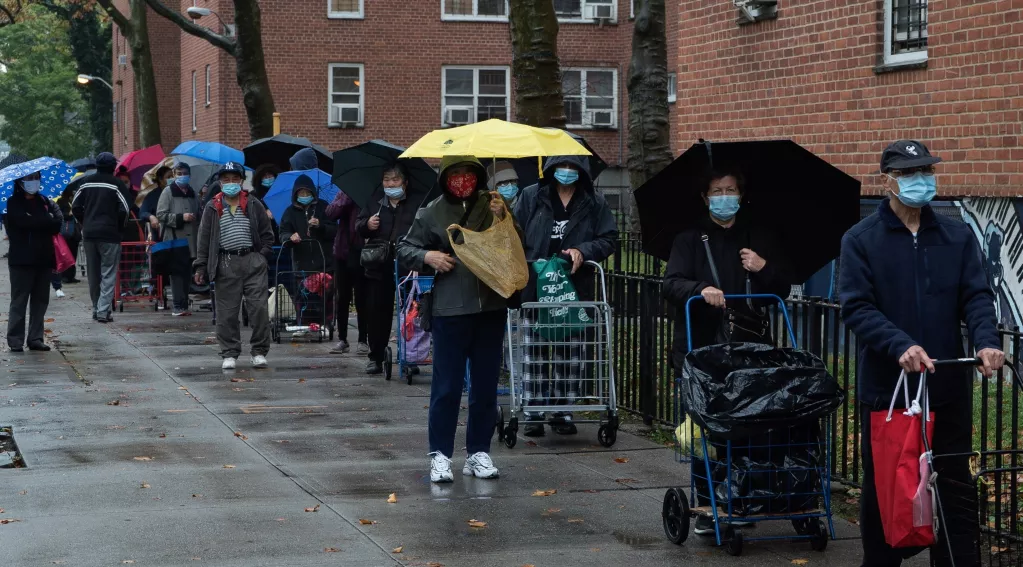Congress will Vote on Public Charge on Wednesday, May 17

Wednesday, Congress will vote on a resolution related to the public charge ground of inadmissibility, a long-standing policy of United States immigration law that requires immigrants to be self-sufficient. Senator Roger Marshall (R-Kan.) and others have introduced S.J. Res. 18, a joint resolution disapproving the Biden Administration’s Final Rule on Public Charge, which recently went into effect. FAIR supports this resolution.
Since the 1800s, our nation has required foreign nationals seeking admission to the United States to show that they will be able to care for themselves without becoming a “public charge,” or a burden on the taxpayers. In federal law, Congress specifically directs the executive branch to consider various factors when allowing people into the U.S. These factors include age, health, family status, assets, resources and financial status, and education and skills.
Today, our country faces a crisis at our southern border. Over 6 million people have entered the country illegally since President Biden has taken office. Another 1.5 million people have evaded apprehension and entered the country. Thousands upon thousands more continue to surge our border in hopes of entering, working and remaining in the U.S. Our immigration system is broken, and the Biden Administration has found ways to ignore or abuse our laws to create unlawful programs that help illegal immigrants to enter the country.
Despite the crisis at the border, our nation remains one of the most generous nations on earth. We open our doors to refugees and provide asylum to hundreds of thousands of people each year. It is not a surprise that people want to enter the United States and live the American dream.
Many of the people crossing our borders today will seek citizenship down the road, and the President and open-border advocates will call for amnesty to deal with them. But if you reward illegality, you get more of it. Many know they can take advantage of the services and benefits we provide, and they will seek to be treated just as Americans, despite breaking our laws.
While the availability of public benefits should not be an incentive for immigration to the United States, in reality, it is a pull factor for legal and illegal immigration. People around the world leave their homes and migrate to places where they know they can find financial assistance and economic stability, as has been proven by sanctuary cities.
According to FAIR’s own estimate, at the start of 2023, the net cost of illegal immigration for the United States – at the federal, state, and local levels – was at least $150.7 billion. That estimate, done before the worst of the border crisis, also demonstrates that illegal immigration costs each American taxpayer $1,156 per year.
Under President Trump, the Department of Homeland Security (DHS) issued a rule that would have required immigrants seeking to remain in the United States to be self-sufficient. The rule set parameters on what benefits would be considered in decisions on whether to grant aliens permanent legal status, and it laid out the level of dependency at which an individual was deemed likely to be a public charge. But under President Biden, the regulations have changed.
The Biden Administration’s public charge rule recently went into effect. The Biden Administration will not consider the receipt of many public benefits in the decision whether to grant a green card to a would-be immigrant. In doing so, it makes a mockery of the law and the intent of Congress to ensure that immigrants are self-sufficient.
Senator Marshall’s resolution of disapproval would rescind the Biden rule and hopefully result in the Administration going back to the table to craft a rule that will ensure self-sufficiency of intending immigrants, and work on a rule that protects American taxpayers.

